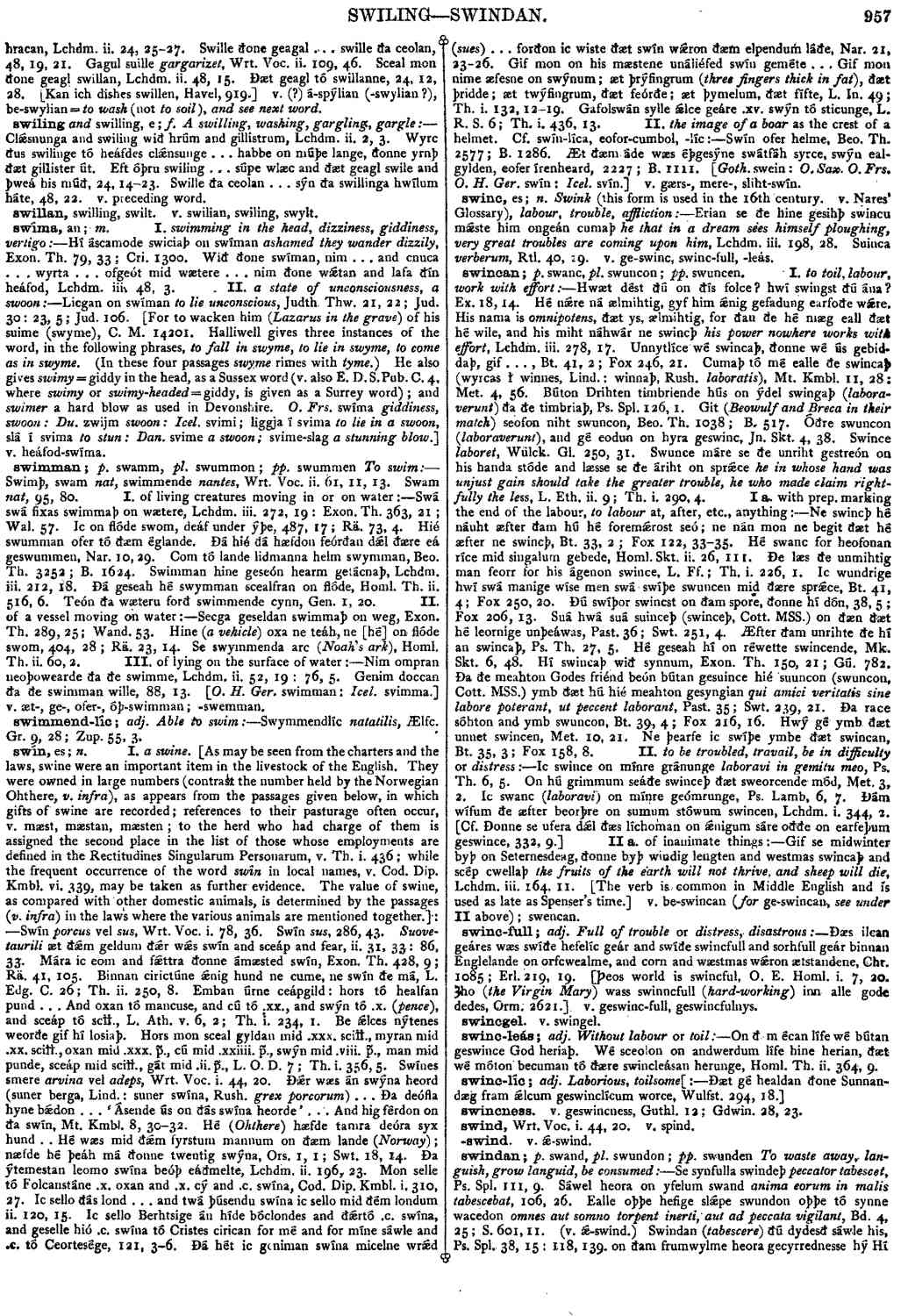swíma
- noun [ masculine ]
-
Hí áscamode swiciaþ on swíman
ashamed they wander dizzily,
- Exon. Th. 79, 33 ; Cri. 1300.
-
Wið ðone swíman, nim . . . and cnuca . . . wyrta . . . ofgeót mid wætere . . . nim ðone wǽtan and lafa ðen heáfod,
- Lchdm, iii. 48, 3. ,
-
Licgan on swíman to lie unconscious, Judth
Thw.
- 21, 22; Jud. 30 - 23, 5 ; Jud. 106.
Bosworth, Joseph. “swíma.” In An Anglo-Saxon Dictionary Online, edited by Thomas Northcote Toller, Christ Sean, and Ondřej Tichy. Prague: Faculty of Arts, Charles University, 2014. https://bosworthtoller.com/29811.
Checked: 0